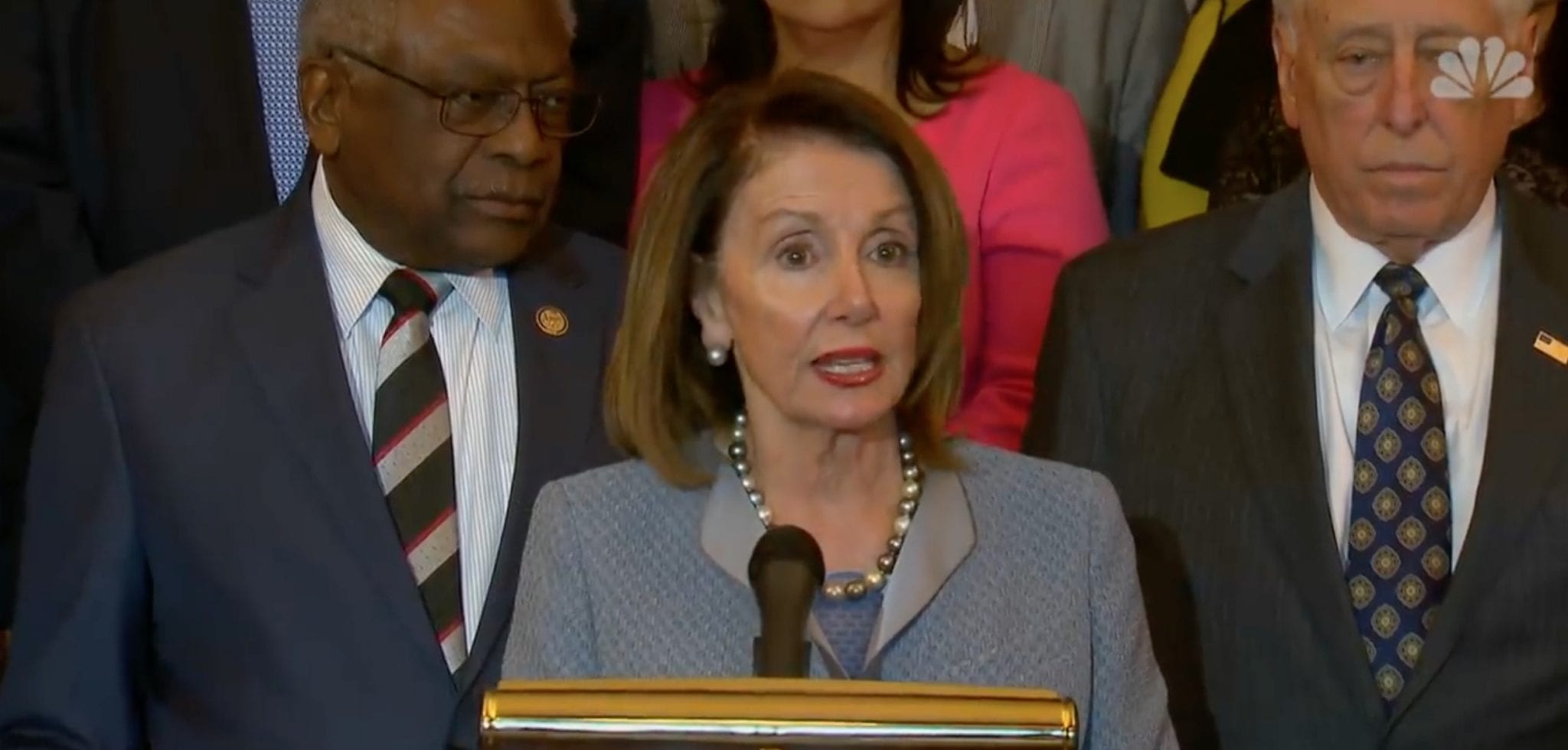“We have been dealing with health care constantly,” Speaker of the House Nancy Pelosi maintained this week. “The public attention has been on the Mueller report, but we have been focused on health care.”
A these-are-not-the-droids-you-are-looking-for quality animates the speaker’s words. She wants her party’s pivot from RussiaRussiaRussia to healthcarehealthcarehealthcare to look like a straight line instead of a 90-degree angle. The former issue, in the wake of Robert Mueller’s I-got-nothing report, proved deflating in a way not quite captured by Y2K, opening Al Capone’s vault, or the unveiling of the Segway; the latter, which Democrats stressed in the leadup to their 2018 triumph, worked for them before they strangely abandoned it. So, Pelosi and company got back to where they once belonged as they insisted that they never left in the first place. People who mistake slander for policy generally do not reflect on their dishonesty with honesty.
“The Republican Party will become the Party of Great HealthCare!” the president tweeted on Thursday. “ObamaCare is a disaster, far too expensive and deductibility ridiculously high — virtually unusable! Moving forward in Courts and Legislatively!”
The Democrats find themselves in the unenviable position of defending the Obamacare status quo or the awkward position of attacking it less than a decade after passing it. Republicans occupy uncomfortable ground as well. The Democrats and the media, as though oblivious to the philosophical differences between the parties, frame the debate as one in which one party offers a plan to provide healthcare for everyone and the other party possesses no plan because it does not want to fund healthcare for all (imagine if journalists asked Democrats for their plan to cut taxes or build a border wall).
Rather than fixate on the tiny, and temporary, portion of the public without healthcare (by chance or choice), plans going forward should focus on reining in costs. The Centers for Medicare & Medicaid Services estimates a rise in the total amount Americans spend on healthcare from $3.5 trillion in 2017 to slightly under $6 trillion by 2027. In other words, healthcare soon devours more than one in five dollars in the economy. That is not sustainable.
This is true for individuals, business, and government.
“The largest shares of total health spending were sponsored by the federal government (28.1 percent) and the households (28.0 percent),” the Centers for Medicare & Medicaid Services points out. “The private business share of health spending accounted for 19.9 percent of total health care spending, state and local governments accounted for 17.1 percent, and other private revenues accounted for 6.8 percent.”
Do the math. Government at all levels covers 45.2 percent of health spending. Calls to move healthcare toward socialism miss something in the same way that demands for ABC to cancel Joannie Loves Chachi or for Japan to surrender do. The growth in government spending corresponded to an accelerated growth in healthcare spending, which amplified calls for more spending to offset the inflated costs. This half socialist/half market parentage of healthcare in the United States took the worst of both worlds, the waste, inefficiency, and perverse incentives of socialism with the greed of capitalism, to create the monster politicians promise to confront.
Not confronting ballooning costs means an economy that perpetually underperforms as a result of the healthcare burden weighing it down. It means government keeps growing (the federal government just spent $1.8 trillion, the most since the Great Recession, in the first five months of the fiscal year) larger because of healthcare even if spending on nonhealthcare programs declines. It means the estimated $900 billion 2019 deficit expands annually because of the tethering of government spending to overall healthcare costs. It means individuals take home less income as employers siphon off more from salaries to pay for benefits.
Healthcare affordability does not work as the magic bullet to slay all of our problems. But it involves so many issues plaguing the country — slower growth, enormous deficits, curtailed take-home pay, etc. — that do not even touch actual health in a medical sense that ducking the problem serves as a way of ducking almost all of our problems.
Hunt Lawrence is a New York-based investor. Daniel Flynn is the author of six books.























